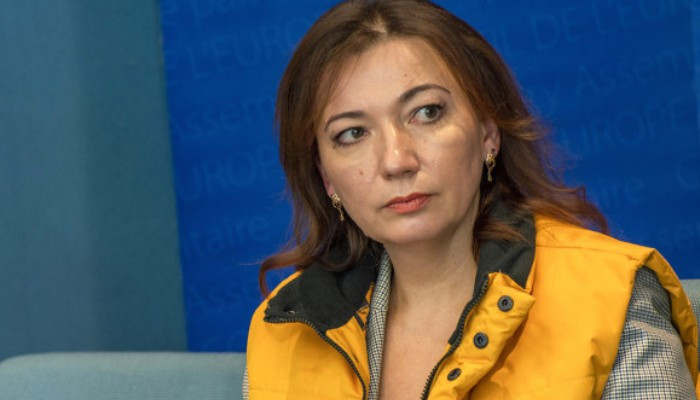The Estonian Internal Security Service writes in its latest annual review that international sanctions, deportations of extremist Russian citizens from Estonia and entry bans have held back Russia in realising its political influence objectives – furthermore, several individuals and associations have also decided to withdraw from active propaganda efforts.
However, according to the Internal Security Service, this does not signal a change of heart; instead, it suggests that pro-Russian activists are not satisfied with the reduced resources now that attention has turned to Ukraine.
The representatives of Russian interests in Estonia have a direct, and materially motivated, interest in restoring their former network and funding scheme. To speed up this process, they are spreading allegations of mass discrimination against Russian-speaking minorities, especially in the Baltics.
“Although official Russian rhetoric has called on Russian-speaking residents in other countries to flee discrimination and come to live and work in Russia, this has been without any real result. Allegedly, Russia could not provide adequate living conditions or even find the necessary resources to sufficiently accommodate the Russian citizens who were deported from Estonia in 2022 for actively promoting Russian influence activities. This is another example of how even people working hard to further the Russian cause are merely seen as pawns to advance the state’s interests,” the security service writes in its 2022-2023 annual review.
“Due to their family ties, many Estonian residents, specifically those living in Ida-Virumaa, are aware of the reality of life in Russia compared to Estonia. This accounts for the lack of interest in settling in Russia, even among those that are culturally or ideologically closely affiliated with it,” the service adds.

Defacing Soviet war monuments more frequent
The Internal Security Service also writes that the defacement of Soviet war monuments became more frequent in Estonia last year, which was also the reason the government decided it was time to remove them from public spaces without delay to ensure public order.
Since 2014 and 2015, efforts have increased to heighten tensions in Estonia, mainly with the support of the Russian embassy and local Russian activists, by promoting their interpretation of history, organising thematic events and displaying visual symbols.
In recent years, law enforcement agencies have repeatedly had to take preventive action against attempts by Russian extremists to sow discord across Estonia at 9 May events, where different historical narratives clash with particular intensity.
Following the commencement of Russia’s direct military aggression in February 2022, there were indications that Russian extremist activists intended to use 9 May celebrations to test the patience of Estonian society and state institutions. Attempts were made to initially present the war in Ukraine as a “low-intensity conflict” that should not affect Estonia or give cause to ban public gatherings.

Russian propagandist fled Estonia
The Internal Security Service also writes that Elena Cherysheva, a Russian media personality who was detained in April 2022 on suspicion of violating an international sanction and a sanction imposed by the Estonian government, fled Estonia and is currently working for the media in the Russian-occupied territories of Ukraine.
“At the end of 2019, Sputnik Estonia, the local branch of Rossiya Segodnya, ceased operations in Estonia as a result of the European Union sanctions imposed on Dmitry Kiselyov, a major figure in Russian media propaganda and the head of the Russian state news agency Rossiya Segodnya. The former manager of Sputnik Estonia, Elena Cherysheva, and her husband, Mati-Dmitri Terestal, then founded the NGO Sprut Meedia, and in 2020, they launched a news website similar to the banned Sputnik Estonia, named Sputnik Meedia,” the security service writes.
According to the security service, Cherysheva and Terestal were detained in April 2022 on suspicion of violating an international sanction and a sanction imposed by the Estonian government. The Office of the Prosecutor General requested Cherysheva’s arrest, which the court did not grant. Elena Cherysheva was banned from leaving her residence but began to violate the ban in late 2022. On 30 December 2022, a court order was issued for her arrest.
According to public sources, Elena Cherysheva is currently working for the media in the Russian-occupied territories of Ukraine. In 2022, several more Russian activists, whose activities the Internal Security Service had assessed as damaging to Estonia’s security, left Estonia for Russia. Elena Cherysheva has been sought by the Police and Border Guard Board since January 2023.

People linked to terrorism interested in e-residency
Another matter the Internal Security Service’s annual review explores is that with the boom in the fintech sector and virtual currency service permits in recent years, people linked to terrorism have expressed an interest in Estonia’s digital residency.
Since the start of the e-residency programme, the security service has identified 26 people associated with Islamist terrorism or extremism who have applied for e-residency or become e-residents. Among them have been individuals linked to al-Qaeda, Daesh, Hezbollah, the Taliban and the Muslim Brotherhood.
“If an e-residency applicant from a country that is not involved in police or judicial cooperation with Estonia meets all the requirements when applying, and there is no discrediting information about them in public sources, then obtaining an e-residency is a relatively simple and speedy affair, taking about one or two months. Revoking e-residency after a security threat has been identified, on the other hand, is a considerably more complicated, time-consuming and costly undertaking for the state. If a person who has lost their e-residency on this basis pursues the matter in court, the process of revoking e-residency can go on for years,” the Internal Security Service writes.

In the future, terrorist organisations, their supporters, extremists and common criminals will continue to show interest in anonymous electronic money transfer services and the ability to conduct transactions that do not require a physical presence. The main defence against the financing of terrorism is the transaction party’s awareness of the risk of money laundering and terrorist financing and compliance with the mandatory due diligence measures provided by law, according to the security service.
“The motives of extremists and/or terrorists for conducting business in Estonia via the e-residency programme are related to their efforts to move economic activity out of the supervision and jurisdiction of the security authorities of their country of residence. In order to conceal their real motives, the individuals associated with terrorism who are granted e-residency take their time before actively engaging in business or channelling transactions and money through an Estonian company,” the Internal Security Service writes.

